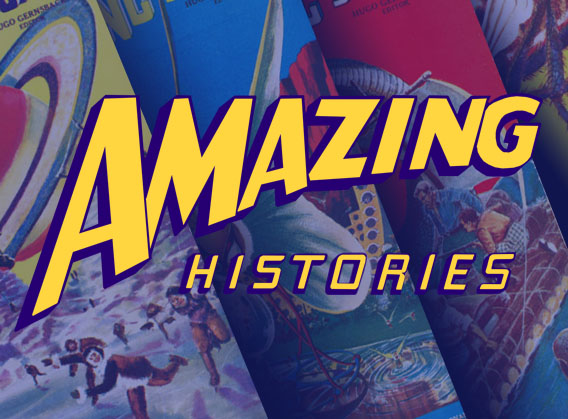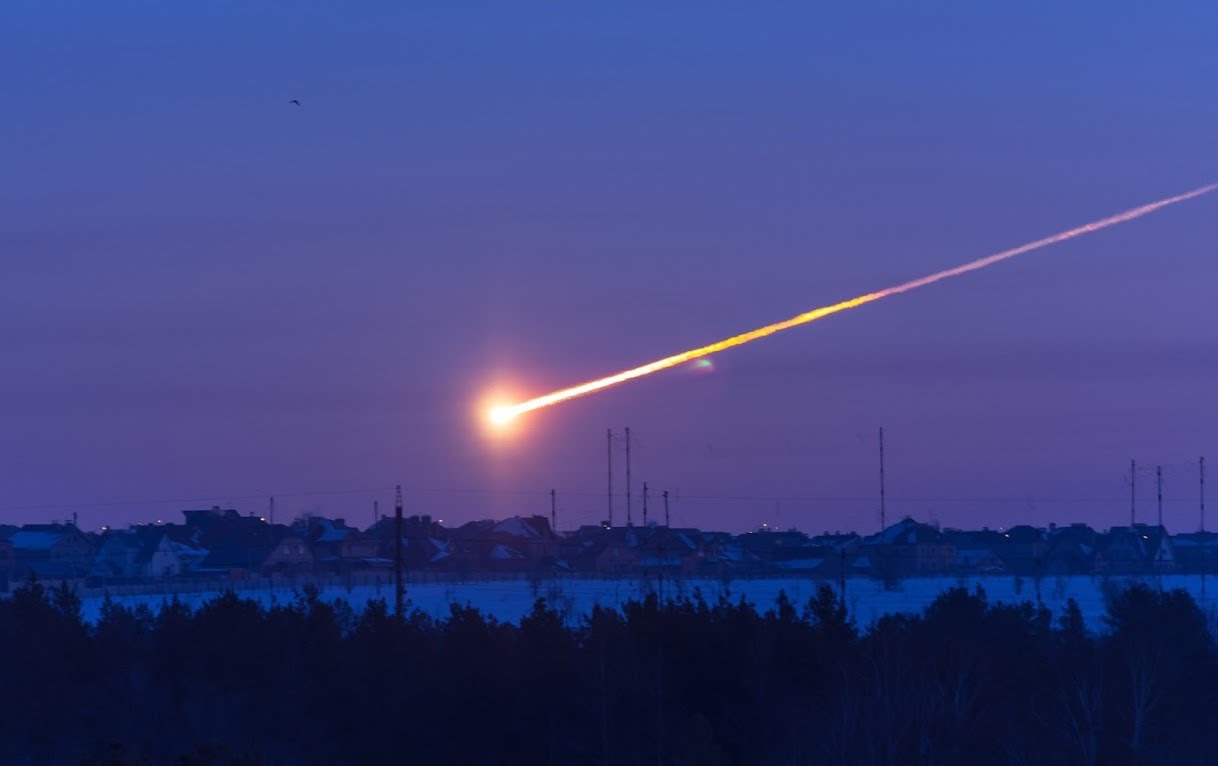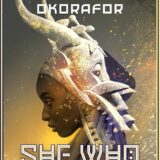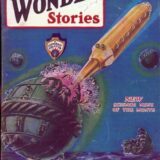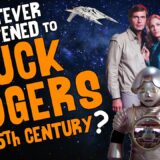
OBIR: Occasional Biased and Ignorant Reviews reflecting this reader’s opinion.
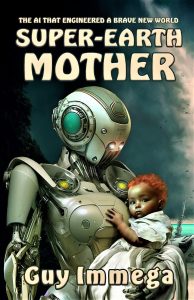
SUPER-EARTH MOTHER: The AI that Engineered a Brave New World – by Guy Immega
Publisher: Edge Science Fiction and Fantasy Publishing, Calgary, Alberta, Canada, 2023.
Cover Art – by David Willicome
Premise:
The man who owns the Moon wants to take humanity to the stars.
Review:
Does that sound like a Heinlein character? A Heinlein situation? The first section of this novel reads like the early Heinlein, the best Heinlein. For a reader like me, steeped in the early science fiction I imprinted on in my youth, this novel is a delightful throwback to the type of science fiction which first stirred my sense of wonder.
The opening sequence is a blast from the past in terms of relentless human optimism struggling against petty-minded human shenanigans both greedy and short-sighted. One man, one incredibly rich and powerful man knows how to save the human race, but nobody cares, because they don’t see the need and are far more concerned with their insignificant, selfish, ignorant limitations.
Vintage Heinlein thinking, yes, but it’s the spirit, the vision, the enthusiasm which attracts me. I, too, would like to see humanity spread to the stars. So, it’s fair to say I was hooked in the first few pages and found myself reading eagerly along enjoying the description of the Lunar colony, the secret starship project, and the race to get it launched before lesser minds interfere. I regard the entire opening section as something of a cheerful antidote to the nay-sayers of today.
The author, by the way, is a renowned scientist in his own right. I interviewed him years ago about the robot tentacle he invented. He belongs to the “Vancouver Lunar Circle—modelled on the Lunar Society of Birmingham in the 18th century—a disparate group of scientists, engineers, writers, and inspired geeks…” For many years he served as volunteer science advisor to Spider and Jeanne Robinson. Long story short, he is a scientist of impeccable credentials, and you can take for granted the science underlying this novel is up-to-date, genuine and in its most speculative form, entirely plausible given the current state of knowledge.
There is nothing hesitant about the science, no second-guessing. Immega writes with confidence born of accurate, state-of-the-art knowledge extrapolated forward with logical, sound reasoning. Of course, being science fiction, there’s at least one impossible premise, maybe dozens, but it all sounds so convincing! This glimpse of what science can hypothetically accomplish is positively refreshing. Like a breath of fresh air.
Granted, Murphy’s Law seems to be the main propellant behind the plot, but that’s reality, and the principal source of the drama in this novel. So much so that the AI guiding the ship over its 20,000-year journey, despite its incredible intelligence and access to all human knowledge, is frequently challenged, non-plussed, and even annoyed by unanticipated problems which threaten the mission. Does it always solve the problem? No. Often it jury-rigs a procedure which gets around the consequences of said difficulty but in so doing lessens the chances of the mission ultimately succeeding.
Which begs the question, how does a sentient, self-aware, fully conscious AI handle frustration? Or boredom? What does it talk to itself about? I suppose the closest parallel would be how does a psychiatrist handle living? Every personal problem exaggerates a vast situational awareness of all the problems experienced by their patients. Wouldn’t that make things worse? So, surely access to the total knowledge (i.e., experience) of the human race would be no help at all to an A.I. self-consciously aware it is only a simulacrum and not the genuine article?
The above is merely something that just occurred to me, but it is typical of the sort of thing the AI ponders during the trip. What is on display is a serious thought experiment about what intelligence means were it resident in an AI, and how the AI would contemplate its own nature. What are the possibilities? What are the advantages? The limitations? Would a self-aware AI be like us or something worse? Would it be as crazy as we are? Crazier?
This section of the book is radically different from the beginning of the novel. Call it a philosophical treatise on what AI is likely to be once true AI is manifest, a conceptual exploration informed by the latest thinking on what artificial intelligence will turn out to be. As an aside, I could point out that many current humans appear to be guilty of artificial intelligence, but that’s a different can of worms typical of my tendency to zig off in many directions, so never mind… though I’m reminded that Philp K. Dick gave a speech in Vancouver in 1972 arguing that we need to study machine intelligence in great detail if we are ever to fully understand human intelligence, and that for this reason the impending advent of AI will be a revolutionary step forward in understanding ourselves… but you know P.K. Dick, always a kidder…
My main point is that the journey sequence is never boring, but instead is quite fascinating and thought-provoking. It’s also a great way to get to know the main character, since the AI is the “Super-Earth Mother” of the title.
Eventually the colony-ship arrives, not entirely in good condition, at the habitable exo-planet that is the goal of the mission. I should note this is not your usual starship. It’s not a multi-generational cruise ship, for one thing. There are no living human beings on board. Nor frozen ones in some sort of stasis. Instead, perhaps the most economical and efficient means of transplanting humanity to another planet beyond our Solar System is laid out on the basis of assumed advances in our understanding of the basics of human biology. Works for me. I have no problem accepting the premise.
It is up to the AI, who remains in orbit, how best to disperse the beginnings of a new civilization, a new humanity, across the surface of the planet in such a way to maximize the chances of success. Right away the reader questions its choices, which is fair, since it questions itself. The AI doesn’t want to maximize the prospect of success, it wants to guarantee success, but is that even remotely possible?
The third act, so to speak, is rather like the biblical “Genesis.” First, two humans are introduced to the biosphere, male and female, rather like Adam and Eve. Then other pairs are introduced. They begin to reproduce, and now the multi-generational aspect, absent from the voyage, is brought into play. We follow a number of characters from childhood to old age, and their interactions with their offspring and other “colonists” they come across. It gets quite complicated, because every individual is truly unique and virtually impossible to fit into any template of human social interaction residing in the AI’s memory banks.
In short, the AI becomes a typical mom. Not always listened to and respected. Certainly not always obeyed. The old trope that human colonies on other planets will automatically fall into a mature, logical, yet happy and communal utopian setting never enters the picture. Human fallibility and pettiness take charge, which is to say, human nature triumphs. None of the characters are stereotypes. They all evolve and change, just like readers in their own lives, and often with unexpected results. Consequently, the long-term survival of the colony is always at risk. Growth is not inevitable, especially when starting from scratch. The whole exercise is an ongoing question mark. The Super-Earth Mother finds this less than reassuring but refuses to contemplate failure. She struggles to guide and advise as best she can no matter how powerful Murphy’s Law becomes.
(Of course you know Murphy’s Law is “Everything that can go wrong will go wrong.” But maybe some younger folk are unaware. It’s a great plot device.)
Now, the small group dynamics exhibited in the book are fascinating, complex characters living complex lives, but so too is the nature of the planet that is their home. It’s habitable, but quite different from Earth. There are peculiarities of orbit, climate, resources, geology and so on which render the environment, not necessarily more dangerous than that of our home planet, but equally challenging. In that respect what the exploring humans discover as they spread across their adopted world is excitingly new and intriguing to the readers. Makes the struggle for survival all the more interesting. Here, again, I’m certain great attention has been paid to underlying scientific principles like orbital mechanics or how ocean tides are generated. Science the servant of fiction. Gotta love it.
The same level of scientific background goes into working out the functioning of the local ecology. Bit by bit the dominant life forms are discovered and confronted. Some are harmless, but certain of the predators are truly nasty, and best avoided since defeating them is rather difficult. I am reminded of Edgar Rice Burroughs “Venus” series, with its Earth hero constantly coming across horrific monsters in the lush Venusian jungles. This novel conveys something of that spirit.
But this novel isn’t pulp fiction. The multiple human characters, each in their own way, seek to understand and exploit the nature of the critters they encounter. It’s about survival, after all, which means taking risks. The trick is to ensure the benefits are worth the risk. One must be practical to survive.
Which isn’t to say that pure logic dictates behaviour. You can understand precisely how to slay a given “monster” but justify your practical ability on the basis of some weird belief system or odd assumption. You learn what you need to do, but how you interpret what you do, the justification for it, its “hidden” symbolism, is up to you and your imagination. This tendency on the part of the humans under the Super-Earth Mother’s care is part of the reason she must be cautious in handing out practical advice. She can never predict how it will be twisted out of shape. Still, as long as they manage to survive…
CONCLUSION:
I’ve presented only the bare bones of the novel’s premise. It’s a fast-paced read full of incidents and concepts fleshed out with interconnecting details resulting in a fully realized setting that feels not only plausible but very real. All the characters, including the AI, are constantly struggling to adapt to unexpectedly changing circumstances which could prove fatal if the wrong choices are made. This sense of challenge and threat pervades the entire novel, brings it to life, makes you want to keep turning the pages.
I read the novel in one sitting. Of course, I had a deadline to meet. But more than that, I wanted to keep turning the pages. I couldn’t wait to find out what would happen next.
But it wasn’t just the action or threat of action which kept me going. Throughout the novel questions are raised about what we are and where we are going. I’ve made up answers to some of them. Others I am still pondering.
From this reader’s point of view the novel is terrific. It engages my mind intellectually, rouses all sorts of emotions, is just plain fun to read, and best of all, stirs my sense of wonder.
“Super-Earth Mother” is my idea of what a science fiction novel should be. A pleasure to read.
Kindle available now. Paperback available September 1st. Get it at: < Super-Earth Mother >



